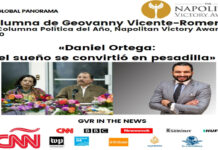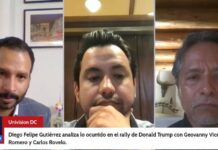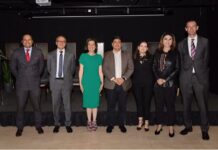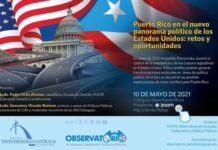
By Claudia S. de Windt and Yadiel Garcia Solis
Investors, authorities, and leading companies interested in Latin America and the Caribbean all joined the Inter-American Institute on Justice and Sustainability (IIJS) and its partners in Washington, D.C. for the first-ever Inter-American Business and Nature Forum (IABNF). The forum (House of Sweden, September 15, 2023) set a framework to build public-private coalitions in deploying and leveraging nature’s positive investments that can transform business risks of the biodiversity and the climate crisis into opportunities.
Biodiversity loss and ecosystem collapse, lack of climate mitigation, and climate adaptation are viewed as the most rapidly deteriorating global risks over the next decade. However, the 2023 World Economic Forum’s Global Risks Report pinpoints a return to old risks against a backdrop of new concerns. The world’s top current risks are energy, food, inflation, and the overall cost of living crisis. The Americas are highly diverse. Latin America and the Caribbean contain about 50% of the world’s biodiversity. The economic value of terrestrial nature’s contributions to people in the region, including in food and energy, is roughly equivalent to the region’s gross domestic product. The region faces escalating risks due to more intensive use of nature than the global average, exceeding nature’s ability to renew its contributions. The stakes are high but corporate and government strategies can translate risk into a value-added business proposition for the region by de-risking people, nature, and the economy. “Biodiversity is the library of life, the library of DNA of the planet.” “There is hope in action and untapped potential” – said Carlos Alvarado (President of Costa Rica 2018-2022) while opening #IABNF2023. The region, the largest global food exporter and a major bioenergy trader, can champion on de-risking nature, people, and the economy.
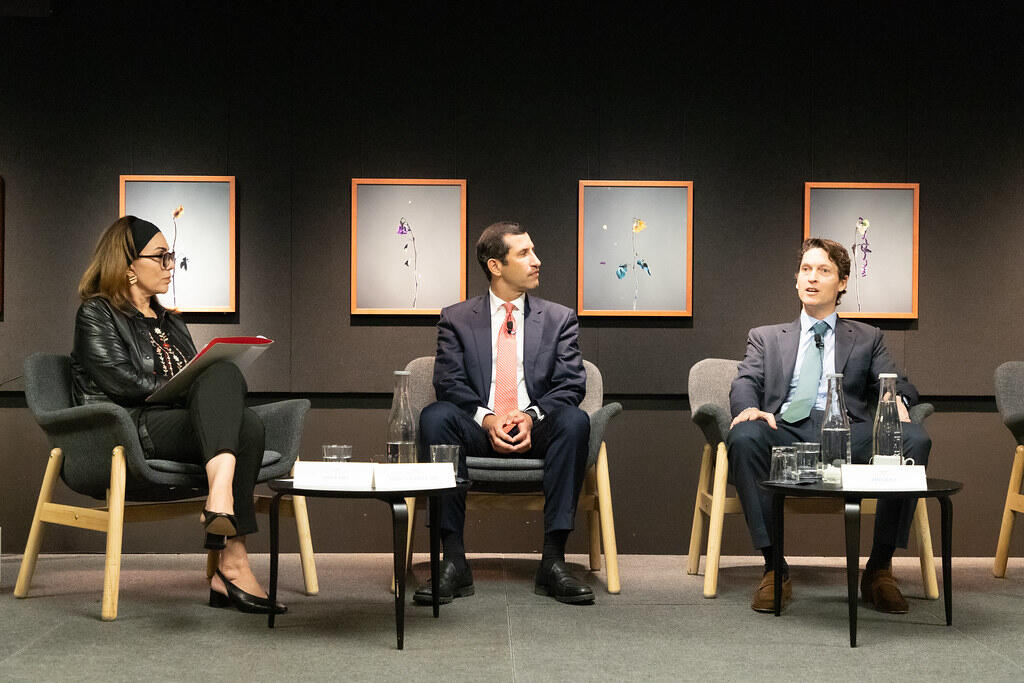
IABNF’s blueprint in five takeaways, outlines a path to address old and new global challenges, enhancing value in Latin America and the Caribbean:
1. Tackling the Food and the Energy Crisis Head-On.
“The goal is not only for one organization, but for companies, stakeholders, and other sectors to make sustainability the norm” – Camilo SantosDeputy Director Latin America Market Transformation Roundtable on Responsible Palm Oil (RSPO).
For the next decade, agribusiness, textiles, minerals, and the energy sectors will play pivotal roles in addressing the twin challenges of food security and energy transition. Agribusinesses, with modern practices and technologies, enhance food production, ensuring a steady supply chain. Meanwhile, textiles contribute by producing innovative, eco-friendly fabrics and reducing waste in the fashion industry, freeing up resources for agriculture. Minerals and metals underpin energy technologies, powering the transition to cleaner sources, that are crucial for sustainability. Energy, in turn, fuels irrigation, transportation, and food supply chains essential for food security. IABNF highlighted the importance of governments and business working together to invest in multi-domain, cross-sector risk preparedness to building societal resilience by establishing the framework for enabling conditions, knowledge sharing partnerships across industries and sectors.
2. Policy Coherence: the right incentives to eliminate perverse subsidies are crucial.
“Placing adequate incentives towards the effective projects that address global goals will create the change that is needed.” – The Hon. Senator Rosa Galvez (Canada)
Half of the assessed targets outlined in the Sustainable Development Goals are currently at risk, with perverse subsidies playing a significant role in this challenge. Scientific consensus emphasizes that our current global efforts are insufficient; transformative changes are imperative to restore and safeguard nature. Taking action on global goals, such as those outlined in the Kunming-Montreal Global Diversity Framework (GBF), is a vital step in preserving the fundamental life support systems of our planet. Achieving policy coherence and clarity is essential; it enables investors and companies to form necessary partnerships, fostering innovation that supports the implementation of global biodiversity goals across different scales and key sectors. Successfully achieving this will propel us further towards creating a biodiverse and sustainable environment.
3. Empowerment and Impact: Knowledge Sharing Unleashes Business and Nature Potential.
“Speaking within your own sector or country is not enough. Breaking the silos and sharing knowledge is the change at combating the biodiversity crisis.” – Fiona Clouder Director, ClouderVista. UK Government Regional Ambassador for Latin America and the Caribbean for COP26 (2020-2022)

Knowledge sharing is paramount, decoupling the relationship with nature by sharing lessons across sectors. Understanding what works and what doesn’t is essential for transitioning from isolated projects to green economies that are also socially just. Additionally, understanding how different businesses are tackling the biodiversity crisis promotes collaboration and accelerates solutions. This approach fosters innovative ideas, exemplified by the many ventures shared at IABNF and their sustainability footprint. Sharing knowledge encompassing trends and patterns observed across industries in addressing biodiversity issues empowers entire sectors, supply chains, and the economy. This maximizes resource efficiency and enables industries to embrace opportunities for their mutual benefit.
4. Urgency in establishing enabling conditions in investment deployment and sustainability.
“The capital to invest in Latin America is there but we must show that there are conditions in the region to enable investment.” – Fabio Jose Fagundes Chief of Financial Products & Services at IDB Invest
Companies and investors recognize the untapped potential in Latin America to address global business and nature challenges while ensuring profit. Although there is significant capital available for investment in the region, the current lack of conducive conditions such as limited timeframes, poor impact measurement, ESG integration, and policy and regulatory inconsistencies hamper its deployment and sustainability. Creating these conditions is key to addressing biodiversity risk and loss while redirecting and ensuring investments and financial resources are coherent and reach Least Developed Countries (LDCs) and Small Island Developing States (SIDS). Latin America and the Caribbean can continue to serve as a laboratory for finance innovation with an array of approaches from PFP’s to bond issuance and debt for nature swaps that contribute to biodiversity preservation, climate change vulnerability, and inequality. The region has the potential of supporting both global climate and nature goals, with the backing of multilateral development financial institutions, policy, regulation, environmental, and social frameworks while having incentives in the right place. Attracting investments, innovating and interoperability to support access to credit can enhance sustainable agriculture, industry, the energy transition, and the minerals and metals required for inclusive economic development and poverty alleviation. The key to unlocking investments lies in simplifying and streamlining the public finance system. By first untangling this complexity, we can pave the way for effective investment deployment throughout the region.
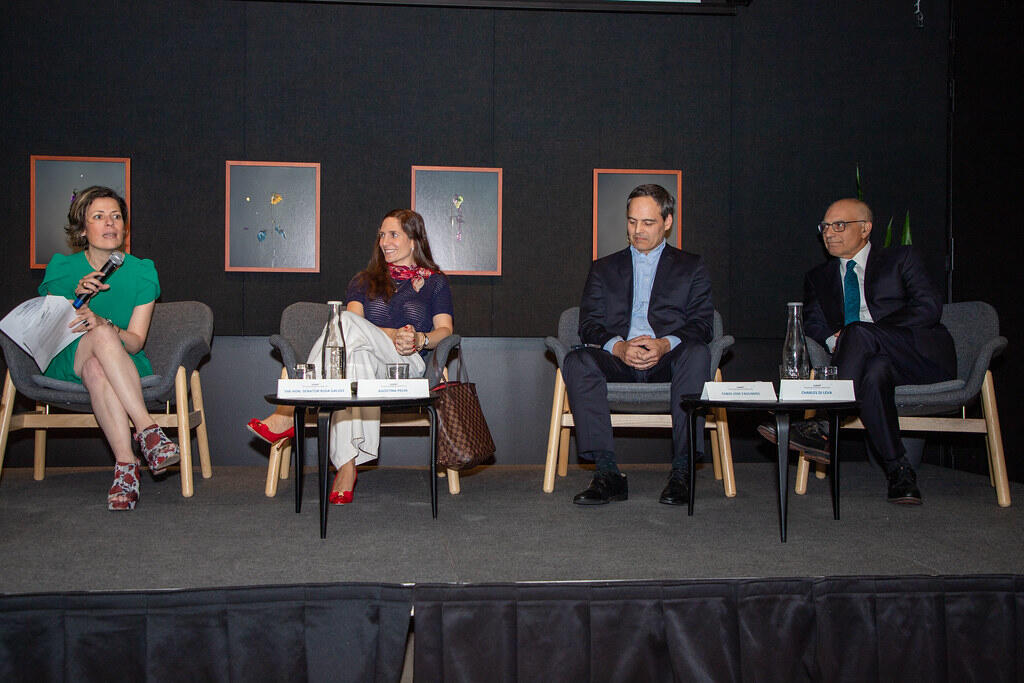
5. Biodiversity Integration and Nature Risk Assessment cannot be ignored. They are Essential for Modern Business
“Businesses know that they can’t continue with business as usual, and the new way forward is to work towards saving the planet” – Carlos Manuel RodriguezCEO and Chairperson, GEF Council.
Ignoring biodiversity loss will lead to undermined profit for industries across the board. This is the final takeaway. Over half the world’s total GDP is dependent on nature and its biodiversity. Biodiversity integration is non-negotiable. Ignoring biodiversity threatens global GDP, nature, and humans. Embracing approaches that align industries with nature is not just environmentally wise—it’s economically imperative.
IABNF ignited the spark of collaboration, crafting public-private coalitions aimed at extinguishing the fires of the biodiversity crisis. In the realm of building green economies, inclusivity isn’t just a virtue; it’s a necessity. The current scenario calls for de-risking nature, people, and the economy. The stakes are high in this return to old risks against new concerns. As we glean on these five key takeaways, the key legacy of IABNF2023 lies in working together with business and nature to author a brighter future with a value proposition for the region. There is hope and opportunity in action towards addressing old and new risks.

 Español
Español

